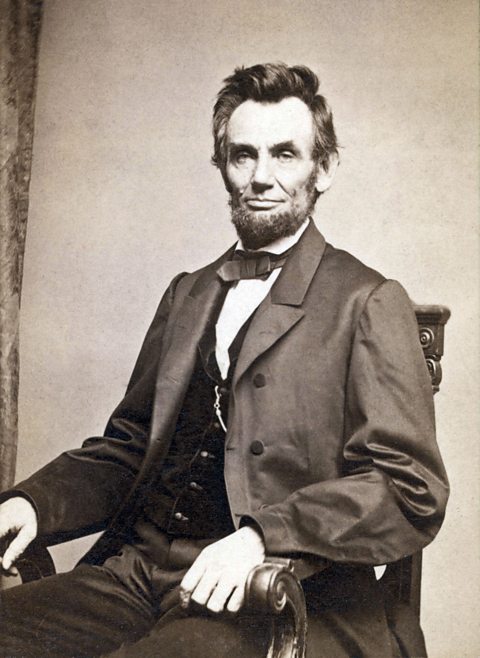Causes of the Civil War
Election of Abraham Lincoln

Abraham Lincoln was born into relative poverty in Kentucky in 1809. His father worked a small farm. In his youth, Lincoln held down a variety of jobs before moving to Illinois and becoming a lawyer.
Lincoln sarted to get involved in local politics. Lincoln’s political views came to the fore after the Kansas Nebraska ActAn act that allowed the new territories of Kansas and Nebraska to choose for themselves whether they would become slave or free states. where he spoke out against the spread of slavery.
1860 was the presidential election year. In the spring the two main parties, the Democrats and the Republicans chose their candidates.
- Abraham Lincoln (Republican). The Republicans held their convention in Chicago. Lincoln was chosen with overwhelming support.
- Stephen Douglas (Democrat – Northern). The Democratic Party was split. Northern Democrats wished for further compromise over slavery. Douglas was chosen as their candidate.
- John Breckinridge (Democrat – Southern). The Southern Democrats wanted no compromise on slavery. They wished to see slavery guaranteed and were trying to take over the party. They left the Democrat Convention in Baltimore and selected their own candidate John Breckinridge.
- John Bell (Constitutional Union Party). The Constitutional Union Party was trying to prevent the country dividing over the issue of slavery.
The election campaign of 1860 was unusual. Lincoln only campaigned in the North and Breckinridge in the South. Stephen Douglas exhausted himself by campaigning in all the states.
The result was that Lincoln became President. He won all 17 states in the North but none in the South. The country was now more divided than ever.